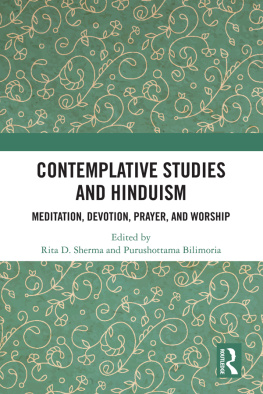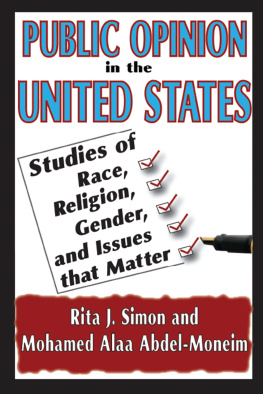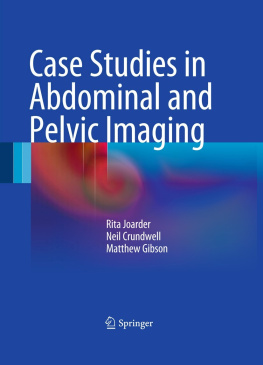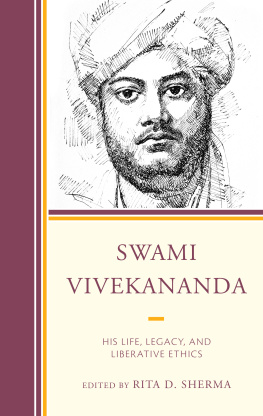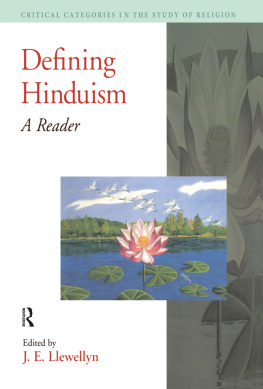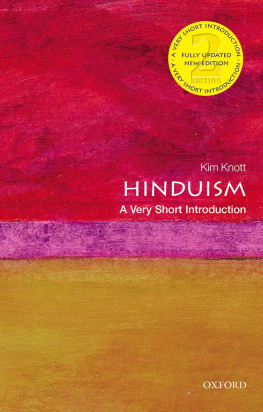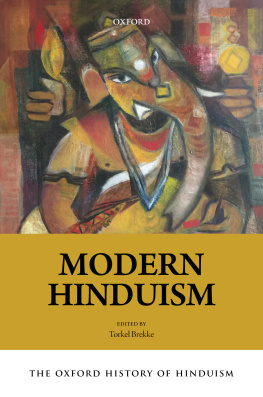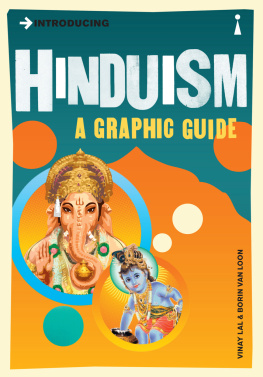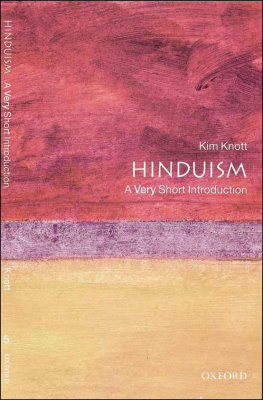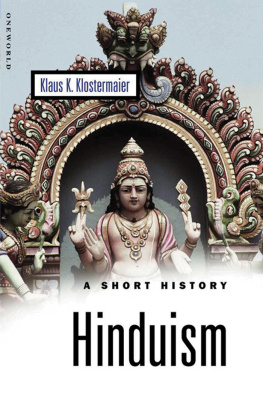Rita D. Sherma - Contemplative Studies and Hinduism
Here you can read online Rita D. Sherma - Contemplative Studies and Hinduism full text of the book (entire story) in english for free. Download pdf and epub, get meaning, cover and reviews about this ebook. year: 2021, publisher: Taylor & Francis (Unlimited), genre: Religion. Description of the work, (preface) as well as reviews are available. Best literature library LitArk.com created for fans of good reading and offers a wide selection of genres:
Romance novel
Science fiction
Adventure
Detective
Science
History
Home and family
Prose
Art
Politics
Computer
Non-fiction
Religion
Business
Children
Humor
Choose a favorite category and find really read worthwhile books. Enjoy immersion in the world of imagination, feel the emotions of the characters or learn something new for yourself, make an fascinating discovery.
- Book:Contemplative Studies and Hinduism
- Author:
- Publisher:Taylor & Francis (Unlimited)
- Genre:
- Year:2021
- Rating:4 / 5
- Favourites:Add to favourites
- Your mark:
- 80
- 1
- 2
- 3
- 4
- 5
Contemplative Studies and Hinduism: summary, description and annotation
We offer to read an annotation, description, summary or preface (depends on what the author of the book "Contemplative Studies and Hinduism" wrote himself). If you haven't found the necessary information about the book — write in the comments, we will try to find it.
Contemplative Studies and Hinduism — read online for free the complete book (whole text) full work
Below is the text of the book, divided by pages. System saving the place of the last page read, allows you to conveniently read the book "Contemplative Studies and Hinduism" online for free, without having to search again every time where you left off. Put a bookmark, and you can go to the page where you finished reading at any time.
Font size:
Interval:
Bookmark:
The editors are indebted to DANAM (Dharma Academy of North America), its executives, and scholars for the opportunity to hold the series of conferences, in conjunction with the American Academy of Religion that led to this volume. The Graduate Theological Union provided essential staff and support, including the able assistance of doctoral candidates Cogen Bohanec and Pravina Rodrigues. Most of all, we wish to thank our eminent contributors whose excellence in scholarship, and depth of understanding of the traditions presented herein has rendered this volume an important addition to both the fields of Hindu Studies and Contemplative Studies. Finally, we wish to thank our families for their love and unfailing support.
This ambitious project started over five years ago in the Annual Meetings of DANAM, in the wake of the rising interest in Contemplative Studies in the international academy, and the development of Consciousness Studies in India and the West, which has strong areas of connection with Contemplative Studies. Papers from the sessions noted above were purposed for publication and have been thematically structured as represented in the sections into which the book is divided. The papers were selectively collected from respective presenters with a specific request to align their papers thematically as intended for this volume. In addition to the DANAM sessions, we also solicited new research that we adjudged as bridging various topics towards a coherent and cohesive argument as was planned, and has been attempted, in this volume (vide Introduction).
A number of individuals have been of much help to us in this undertaking and we are deeply obliged to them. We are particularly grateful to Dr. Adarsh Deepak, PhD, co-founder of DANAM, to whom this volume is dedicated, for his generous support for this learned society, thus making possible the DANAM Annual Meetings since November, 2003. We are also most appreciative of the strong support and inestimable work of Patricia Deepak, Diana McQuestion, and Dr. Rajinder and Jyoti Gandhi. Much gratitude goes to the DANAM Steering Committee and Advisory Board, especially Prof. Ramdas Lamb, and Prof. Christopher Key Chapple.
Last but not least, we are thankful to Routlegde (Taylor and Francis) for undertaking publication of this volume and to the publishers editors, Shoma Choudhury and Rimina Mohapatra, for efficiently negotiating the arduous process of seeing the volume through the production and publication process.

CONTEMPLATIVE STUDIES AND THE PRINCIPLES AND PRACTICES OF HINDU CONTEMPLATIVE LIFE
Rita D. Sherma
This volume marks the first wide-ranging and multi-vocal academic survey of the major types and categories of Hindu contemplative praxis from a breadth of scholarly viewpoints that reflect both (a) the variegation in types of contemplative practices within the Hindu traditions and (b) the use of Hindu internal hermeneutical perspectives for expanding the concept of contemplation beyond definitions that though incrementally enriched by content from Buddhism are still normatively constrained by Christian understandings of the concept. Part of the reason that the field remains fairly unrepresentative of the breadth of religious lives across cultures lies in the dearth of academic works, from scholars of diverse religions, on the subject of contemplative studies.
Contemplative Studies, as a discipline, integrating Social Sciences, Psychology, Neurobiology, Organizational Applications, Health Sciences, and the humanities (including, at times, Religious Studies), Social Sciences, Psychology, Neurobiology, Organizational Applications, and Health Sciences. Whichever way Contemplative Studies is approached, it
makes space for direct personal experience with specific forms of practice. In this way it challenges the denial of embodied experience and subjectivity within much of academic discourse and brings the issue of religious adherence in religious studies into high relief.
The emerging field of applied Contemplative Studies, however, can also seek to use the insights of the field for questionable applications (e.g., military uses, or corporate productivity enhancement) before, or to the exclusion of a deep immersion in the principles, aims, and ethics of religion(s) from which the practices are culled for application. As such, critical analysis of the very real possibility of highly reductionist cultural appropriations of religious contemplative traditions have begun to emerge. In view of these emerging problems, it is worthwhile to reflect on what contemplative practices mean to the traditions which gave rise to them.
Let us start with the Christian idea of contemplation. In the Christian context, it can mean a sustained focus on scripture, meaning of a doctrine, a state of awareness of Gods nearness, or silent reflection. The Catechism of the Catholic Church explains Christian prayer in terms of its expressions in the following way:
- 2720 The Church invites the faithful to regular prayer: daily prayers, the Liturgy of the Hours, Sunday Eucharist, the feasts of the liturgical year.
- 2721 The Christian tradition comprises three major expressions of the life of prayer: vocal prayer, meditation, and contemplative prayer. They have in common the recollection of the heart.
- 2722 Vocal prayer, founded on the union of body and soul in human nature, associates the body with the interior prayer of the heart
- 2723 Meditation is a prayerful quest engaging thought, imagination, emotion, and desire. Its goal is to make our own in faith the subject considered, by confronting it with the reality of our own life.
- 2724 Contemplative prayer is the simple expression of the
Let us look at some of the elements of this important overview: It speaks of daily prayers (personal); liturgy (communal); feasts of the liturgical year (festivals grounded in sacred time); vocal prayer (voice, posture); and meditation (involving thought, imagination, emotion).
The Hindu world of contemplative praxis also offers these elements such as numerous forms and types of personal daily prayers, which I mention in my chapter; Guy L. Beck, in his chapter, points to the importance of communal, liturgical music and hymnody; and, of course, the Hindu calendar is filled with festivals that are meant to evoke sacred time and transcendent space. Vocal prayers (prrthan) enacted as recitation, chants, or hymns are daily practices. Meditations that elicit thought, imagination, emotion, and desire are not only mental or psychological avenues in Hindu praxis. They are embodied practices involving remembrance of the narratives of sacred literature, aided by the vibrancy of imagination, which evokes the power of emotion directed towards the desire for divine communion. Recitation, sacred art, poetry, sacred dance, drama, liturgical music, hymns, and pilgrimage are all embraced under the rubric of embodied contemplative practices. These comprise meditation in motion and are forms of praxis that are understood to lead to communion or union with the Divine.
Finally, the Catechism mentions contemplation. What is meant here by contemplation? Pope Francis has explained this is terms of the way to enter into the mystery liberation. However, there are a number of ways through which one can enter this mystery.
The aim of this volume is to broaden our lenses on the concept of contemplation by introducing the rich culture of meditative communion, devotion, and spiritual formation in the Hindu ethos with its variegation and expansive, millennia-long history of deliberation on what constitutes meditative practices and why. The first question that comes to mind in such a quest is what makes a religious act a contemplative practice? Contemplative praxis is a shared category across many religions though with varying degrees of centrality. The contemplative life may include prayer, worship, ritual, recitation, reading of scripture, meditation, as well as other
Font size:
Interval:
Bookmark:
Similar books «Contemplative Studies and Hinduism»
Look at similar books to Contemplative Studies and Hinduism. We have selected literature similar in name and meaning in the hope of providing readers with more options to find new, interesting, not yet read works.
Discussion, reviews of the book Contemplative Studies and Hinduism and just readers' own opinions. Leave your comments, write what you think about the work, its meaning or the main characters. Specify what exactly you liked and what you didn't like, and why you think so.

